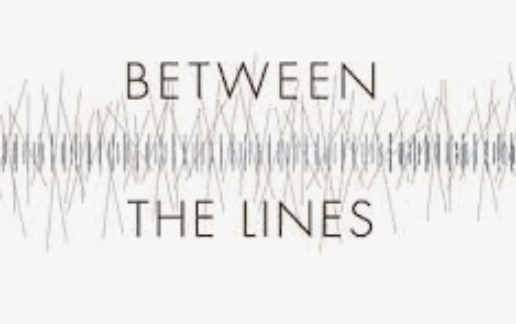
Operation Inspiration
What might have been a rather pedestrian experience turned into one of reflection as it was just before Rosh Hashana. I pulled into a parking lot and as I got out of my car, I noticed that I had not pulled in straight. I was at a sort of odd angle, and part of my car was encroaching on the next parking space. In the past, I’d taken note of people who parked like this, and not appreciated their lack of consideration of others. What did I do? I got back in my car, pulled out, straightened out, and pulled back in. Then, satisfied I wasn’t harming anyone else, I went about my business.
Another time, maybe a day or so later, I went to a different location. Again, I pulled into the space at an odd angle, though slightly less egregious than the previous time. Once again, I was slightly over the lines, but this time I didn’t move. Why? Because I didn’t notice it until I came back to my car. This time, I was with my daughter, (beautiful, charming, smart, and on the market) and she pointed it out. I felt a bit bad that I’d done this, but not as terrible as I might have. That’s because I knew that the other day I’d moved.
Let me explain. When I pulled into the spot, there were two other cars there, and I had to maneuver around them. I was limited in my arc of approach, and I could have excused myself. But I didn’t. I realized that I should have checked myself when I got there, as I had done the previous day. Had I done so, I would have straightened out right away and not been subject to the guild of possible impinging on others. I didn’t say what I did was OK, but I gave myself a bit of leeway.
The fact that I knew it was wrong was a first step, and even though I didn’t check then, I knew it was something I was working on and could get better at.
Staying in the lines is important not just in parking lots or on roadways, but in all parts of life. There are rules and guidelines to follow and sometimes we make mistakes and go over the line. That’s where checking ourselves frequently comes into play.
In Torah vernacular, we would call this a cheshbon hanefesh, an accounting of the soul. It doesn’t need to be a challenging painful experience where we examine all our motives to determine if they are pure. While that is indeed an admirable level to get to, it’s OK to start slowly. It’s good if at least sometimes we can check to see whether we’re staying within the lines and if not, if there’s something we can do to fix it. Even if we don’t remember to do it all the time, if we do it sometimes, and recognize its value, it can become a more commonplace occurrence. It is highly recommended by our Sages, especially at this time of year.
Interestingly, it can be in any aspect of our lives, because our lives as Jews are built on meaningful existence and mindful acts. We don’t do random acts of kindness and senseless acts of beauty, as some well-meaning post-modern philosophers promote. Our kindness is consistent and thoughtful. The beauty we try to add to the world is based on what we know to be truly beautiful and pleasant, and most often manifests in our behavior, rather than our appearance or things we do with nature or art.
Whether it’s something to do with how we speak, pray, interact with others in business, school, at work or at home, we can find little things we can improve on. By stopping once in a while and taking a look at how well we’re staying in the lines, we can try to correct things on the fly, before they get out of hand.
Let’s say you’re having a conversation and the topic turns to other people, as it almost always does. Even if you’ve already said something you shouldn’t, you may be able to avoid doing more of the same. You don’t even have to call yourself out and say, “Oh no! I’ve said Lashon Hara, let’s change the subject,” because often that has a negative effect. It leads to people who don’t want to be accountable for their speech to rationalize what they’re doing, or perhaps even to criticize the halachos or those who follow them. Instead, recognize that you’ve crossed a line and if you back out and try to get a bit straighter, you won’t continue to be out of bounds.
It could be you’re davening and realize that you’ve been daydreaming or thinking about what you’re going to do afterwards. If you catch yourself, know that it’s not too late to make a change and try to refocus yourself. It’s just a little maneuver like backing out and parking a bit straighter. It shows you’re trying to get back on track, and you’ll feel a whole lot better in the long haul.
© 2023 – All Rights Reserved
Did you enjoy this column? Feedback is welcome and appreciated. E-mail info@JewishSpeechWriter.com to share your thoughts. You never know when you may be the lamp that enlightens someone else.